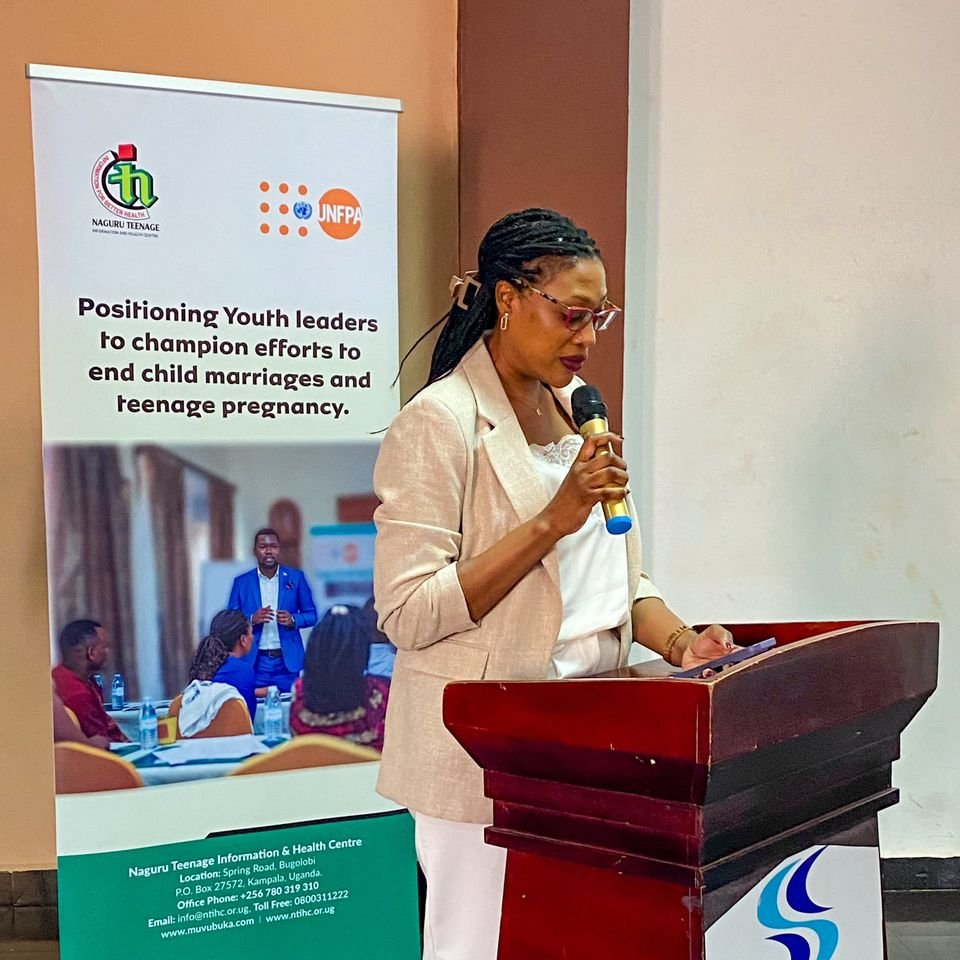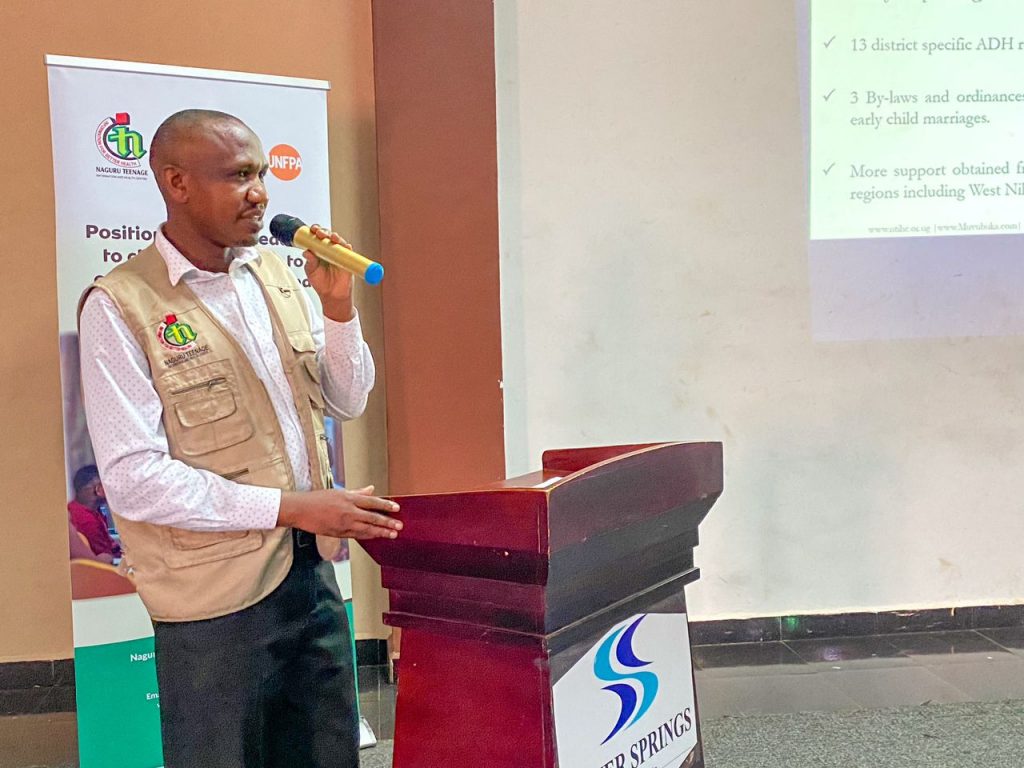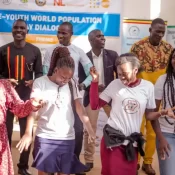Govt commends Naguru Teenage Center, partners for easing youth health services accessibility
KAMPALA – The Government through the Ministry of Health has applauded Naguru Teenage Information and Health Center (NTIHC) and her partners for their dedicated efforts to ensure that young people across the country access health services with ease.
Through the District Committee on Adolescent Health (DICAH) which was emanated from the Adolescent Health Policy 2012, the Naguru Teenage Center has over the years worked with the Ministry of Health, UNFPA, Swedish Embassy, and other partners to realize support of young people at both national and subnational levels.
DICAH is a district-level working group on adolescent and school Health that is meant to spearhead, facilitate and coordinate adolescent Health activities at the district level.
Dr Ampwera Rodgers – Executive Director, NTIHC said at the learning and sharing breakfast dialogue on Monday that DICAHs have been very instrumental multi-sectoral platform that has facilitated efforts towards increased funding allocation for Adolescent Sexual and Reproductive Health and Rights – SRHR services and the integration of and establishing of Youth Friendly Services – YFS in public health facilities.
“DICAHs have as well been resourceful in the coordination of ADH service delivery at the district level.”
With support from UNFPA, he noted that they supported KCCA divisions to further functionalize their DICAHs. “As such, therefore, several wins have been registered in divisions and districts implementing DICAHs.”
Dr Beyangira Rachael – Assistant Commissioner ADH/School Health at the Ministry of Health commended the implementing partners for the job well done, revealing that with the recent demographic survey, a decrease in teenage pregnancies was realized.

However, she challenged them not to take a break but rather double efforts “because as of now, we should have gone way below 20%.”
Dr Beyangira is optimistic that DICAHs will help them move the adolescent health agenda.
“At the ministry, this was incorporated into national adolescent policy 2012. We are looking at increasing the number from 10 to 15 because we believe if we have more numbers, our agenda can be pushed more easily.”
“The Ministry of Health is committed to continuing strengthening the committees,” she said, urging other partners to come on board to improve adolescent health.
Ms. Naiga Specioza, a youth representative and peer educator from Kira Health Center 3 equally lauded the implementing partners, noting that the platform helps them to articulate issues that affect them for better policymaking.
According to her, most health challenges faced by young people are attributed to youth health-seeking behavior.

“These youths fear going to health centers because of the anticipated (poor) welcome. For example, if a youth can easily access family planning services, then, we can prevent early pregnancy,” she said, adding that there would be no or less contracting of sexually transmitted diseases if the young people could access condoms.
“But they [young people] will not go to health facilities for these services because they fear health workers whom they see as their mothers.”
In her area, she noted that they have been able to strategize the sustainability of the youth corners without the partners “because we know they’ll go.”
Mr. Asiimwe Sam – Head of Programs at NTIHC revealed that over the years, they have achieved a number of things and have supported DICAH functionality in 8 districts in the central region, 6 districts in the Bukedi sub-region, and 4 divisions in KCCA.
Also, he noted that 13 by-laws and ordinances were passed by Budaka and Gomba DICAHs to curb early child marriages.
On accelerated youth-friendly services, he says youth corners have been set up in Mukono and Budaka districts
On increased budget allocations, Mr. Asiimwe says in Pallisa, all district departments committed 5% of their annual budget FY2020/21 to family planning services for young people.
“Securing of grants to scale up DICAH: We mobilized funds from Amplify Change to implement The CHANGING TIDES project in Bukedi sub-region where we implemented the DICAH model.”

Recommendations
They called for the finalization review and approval of DICAH guidelines for full implementation in the districts.
They also sought innovative ways of sustaining the DICAHS. “Most of the DICAHs are currently being funded by I.Ps, there urgent to think about innovative sustainability mechanisms for this model.”
Stakeholders want Health Center III in-charges and youth focal persons/peer leaders at KCCA health facilities to be adopted on the DICAHs at divisions.
Also, they say that adolescents need to be reached out most especially out-of-school adolescents for guidance, protection and economic empowerment since most of them are vulnerable.
2 thoughts on “Govt commends Naguru Teenage Center, partners for easing youth health services accessibility”
Add a Comment Cancel reply
Recent Posts
+256800311222
TOLLFREE





That is a very good idea of upbringing youths health.
Good idea of bringing up youths